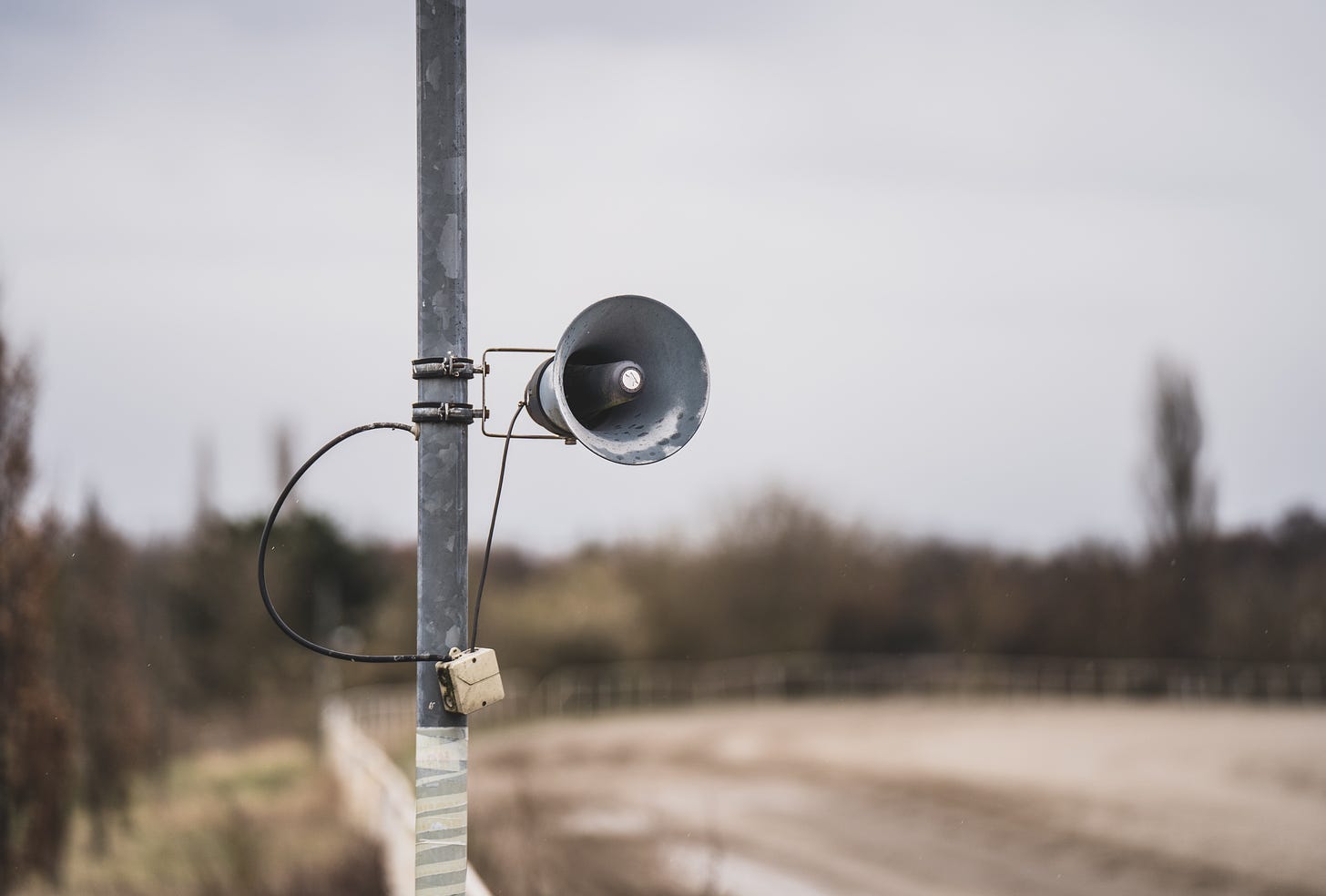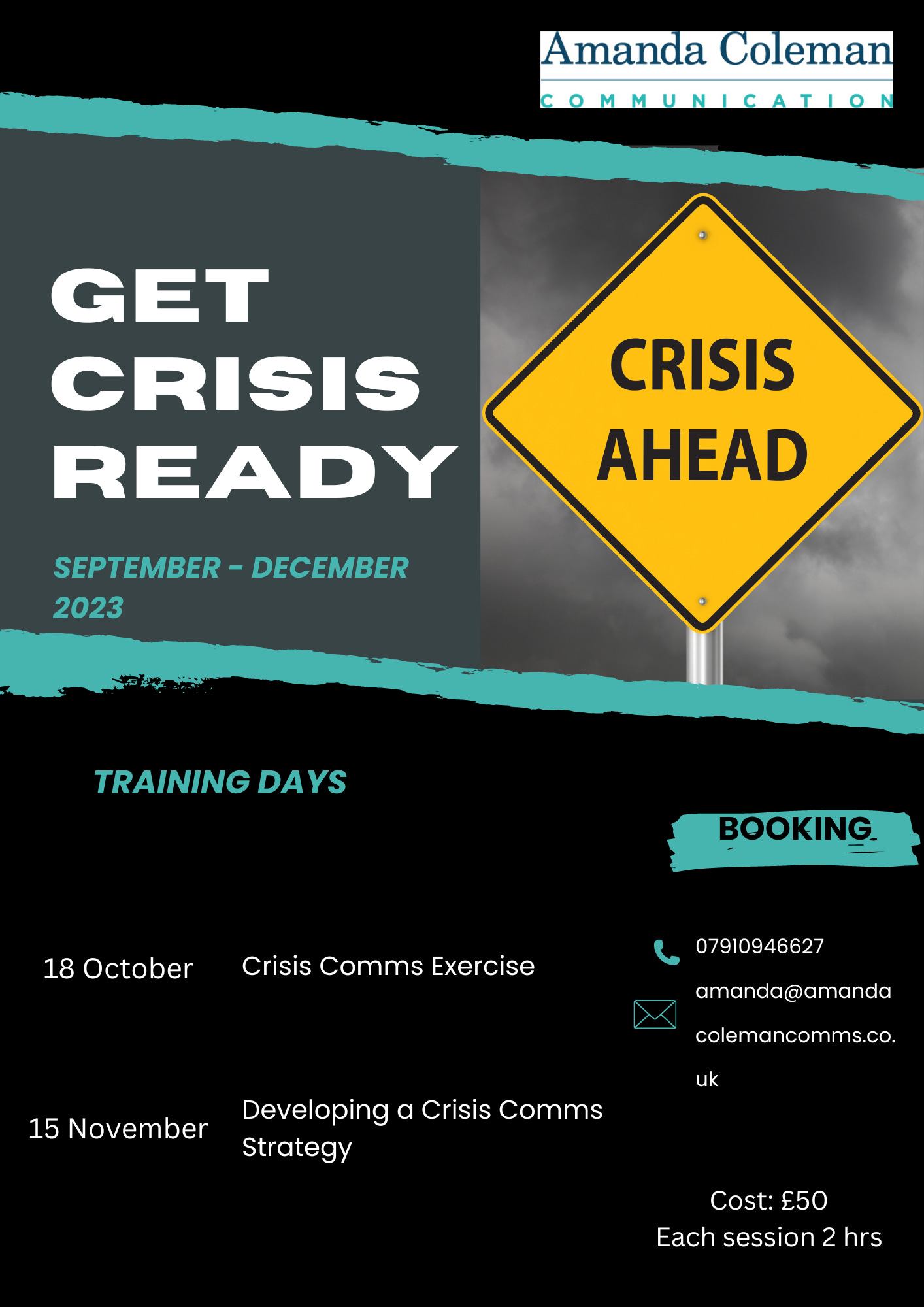Crisis communication and managing opportunities
When I am delivering crisis communication training I often talk about the fact that all problems come with opportunities. There is an opportunity to change, and opportunity to ensure you are supporting those affected, and possibly an opportunity to demonstrate your capability. But care needs to be taken to ensure you do not appear to be trying to benefit from others misfortune.
This goes alongside avoiding telling people you are great, that you can handle things or to trust you. If you have been at the centre of a crisis there is more credibility from others saying that you are doing a good job than from you appearing to say it.
The court case of Lucy Letby attracted extensive media coverage but it is important to remember that at the centre of this are the families who have affected. In some of the media coverage there became a huge frenzy around Letby and who she is, what she did and trying to psychoanalyse her.
The police media statement immediately after the court result was commendable. It maintained a focus on the families who had been affected and the officer showed some genuine emotion. But there was something uncomfortable for me in the documentary being shown on the same night. This has happened in other high profile cases and feels like it goes against an impartial judicial system.
There has been much discussion in the media about the ‘exclusive’ documentary with the investigation team released by Cheshire Police. In years gone by I remember being involved with former police magazine Police Review on detectives casebook articles. This was an opportunity to share good practice with other police officers and was usually published three to six month after a case had concluded. The content of this Cheshire Police video are in the same style but it is for public consumption and was released a few days after the conclusion of the case. It feels too soon and could be viewed, as some have said, as a cynical attempt to gain positive PR.
In a 10 minutes with interview this week with crisis communication expert and author Kjell Brataas we talked about the importance of the human dimension of crises and disasters. It is what we do in this aspect of the communication and response that matters the most. I hope as communicators we all remember those whose lives are changed forever when a crisis, disaster or emergency happens
Warnings and technology
In a recent blog for the CIPR Amanda explored the challenges of relying on technology and social media to alert people to a crisis. Emergencies need a whole range of channels to be used, and quickly, which is why planning and preparing is critical. Find out more about the issue in the article here.
Covid Latest
The UK is seeing an increase in Covid cases linked to a new variant. It has many mutations that are causing some concern. On a personal level I know of a significant number of people who have contracted Covid in the past four weeks. The situation has prompted a u-turn to speed up the winter flu and Covid vaccinations for the vulnerable and elderly. It will be interesting to see what happens in the next few weeks and whether organisations have learnt and are ready for such changes and new Covid variants. This had been discussed and expected so plans should be ready.
Training Update
There are just a few spaces left on the final two dates of crisis communication training for 2023. Amanda will be running one more crisis communication exercise in October and then a session on writing a crisis communication strategy in November. Email amanda@amandacolemancomms.co.uk for more information.
In Brief:
In the latest #10minswith chat Amanda speaks to crisis communication expert and author based in Norway, Kjell Brataas about managing the human dimension of disasters. Watch what he has to say here.
For anyone working in utilities there is a chat about risk and resilience in the water industry on the website Water FM. It follows a recent conference where risk and resilience were considered as a priority. Read more here.
The challenge that AI poses to businesses and the potential for an increase in cyber attacks is highlighted in an article by Fox Business. Find out more here.
The importance of effective communication is one of the elements highlighted for businesses to thrive in times of crisis. Read more in the article by Entrepreneur here.
The latest monthly crisis communication case study has been published. In this edition of Testing Times we look at a situation of crisis contagion. To receive a copy email amanda@amandacolemancomms.co.uk
The website Global Voices provided some interesting insight into how Jamaica shares information about the climate crisis to the blind and visually impaired. It presents a useful reminder about the critical element of ensuring inclusive crisis communication. Ensuring all communities and individuals are considered is essential and this has been shown during the Covid-19 pandemic. Read more here.
Diary Dates:
On 6 September at 11am Amanda is hosting a session for SASIG looking at Why SIEM systems are your sticky SOCy pudding. If you are not sure what it is then you are probably not a technical expert. But if you are interested find out more here.
On 12 September Amanda will be running her popular Crisis Management webinar for the PRCA. Find out more about the session here.
At the Emergency Services Show on 19 September Amanda will be running a lunchtime session looking at tips on managing a crisis in culture and will consider what next for emergency responders finding themselves managing reputational crises. Find out more about Amanda’s session here.
If you want to refresh your knowledge about how to Develop a Communication Strategy, Amanda will run a session on 26 September for the PRCA. Find out more here.




